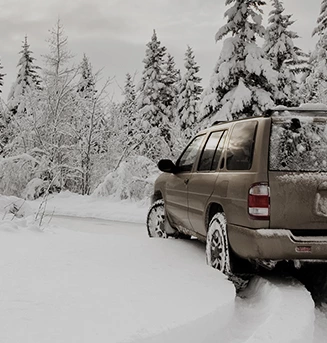Warren Drivers: Is It Time To Replace Your PCV Valve?
July 16, 2015
Improved fuel economy has two benefits for Sterling Heights drivers: less fuel is necessary and fewer emissions are released. Warren cars and trucks run cleaner than ever. Sterling Heights drivers may not realize that the first federally mandated pollution control device came out almost fifty years ago.
Michigan motorists that were around in the early 60's may remember that the PCV Valve came out on 1964 model cars. PCV stand for Positive Crankcase Ventilation.  The crankcase is the lower part of the engine where the crankshaft is housed and where the engine oil lives. The crankshaft is connected to the pistons that power the engine.
The crankcase is the lower part of the engine where the crankshaft is housed and where the engine oil lives. The crankshaft is connected to the pistons that power the engine.
When fuel is burned in the SUV engine, it pushes the pistons down and the crankshaft rotates and sends power to the transmission. Some of the explosive gases from combustion squeeze past the pistons and down into the crankcase.
Now this gas is about 70% unburned fuel. If it were allowed to remain in the crankcase, it would contaminate the oil and quickly turn it to harmful sludge. Sludge is like Vaseline and clogs passages in the engine leading to damage.
Also, the pressure build up would blow out seals and gaskets. So in the old days, there was just a hose that vented the crankcase out into the air. Obviously, not good for our air quality in Sterling Heights.
Enter the PCV valve. It’s a small, one-way valve that lets out the dangerous gases from the crankcase, and routes them back into the air intake system where they are re-burned in the engine. Fresh air comes into the crankcase through a breather tube. This makes for good circulation in the crankcase. And that gets the harmful air out. As you can imagine, however, the valve gets gummed up over time.
Warren drivers that skip oil changes now and then will notice that the PCV valve gets gummed up even faster. If the PCV valve is sticking in your SUV, the gases won’t circulate as well, leading to increased pressure in the crankcase. That, in turn, can lead to oil leaks. Fortunately, the PCV valve is very inexpensive to replace at Sterling Tire & Auto in Sterling Heights. Some can even be checked by your friendly Sterling Tire & Auto advisor.
Your SUV auto makers usually recommend they be changed somewhere between twenty and fifty thousand miles. Unfortunately, PCV valve replacement is left out of some SUV owner’s manuals, but at Sterling Tire & Auto, we will make sure your PVC is replaced if needed.
All of us Warren car owners can do our part for the environment. Watch that lead foot, stay on top of our important automotive maintenance and don’t forget to replace our PCV valve.
Need Service?
More articles from Sterling Tire & Auto

Losing Your Cool (Why is My Air Conditioning System Not Working?)
January 25, 2026
When you turn on the air conditioning in your vehicle, you expect cool air to come out of the vents. You depend on it, especially in hot weather, but it can also be important in humid weather when you need it to help defrost your windows and windshield. The air conditioning system has a lot of p... More

Why Maintaining Your Windshield Wipers and Washers Matters (Windshield Wiper and Washer Inspection)
January 18, 2026
What do mud, bird droppings and frost all have in common? When theyre covering your windshield, they can temporarily obscure your view of the road, leaving you driving blind. And when you cant see the road clearly ahead of you, it can be really scary. Thats one of the reasons its important to m... More

Why is My Brake Pedal Hard to Push?
January 11, 2026
When you push on your brake pedal, you should find your vehicle easy to stop. But at some point, you might notice stopping takes much more pressure on the pedal than it used to. When it gets to that point it becomes a safety issue, and you should bring your vehicle in so we can track down whats... More








